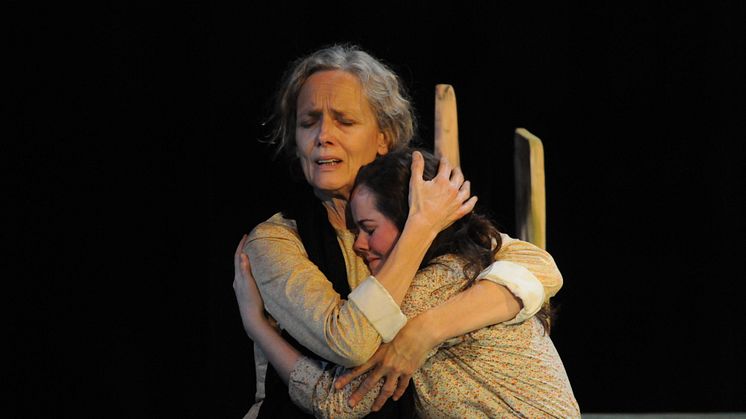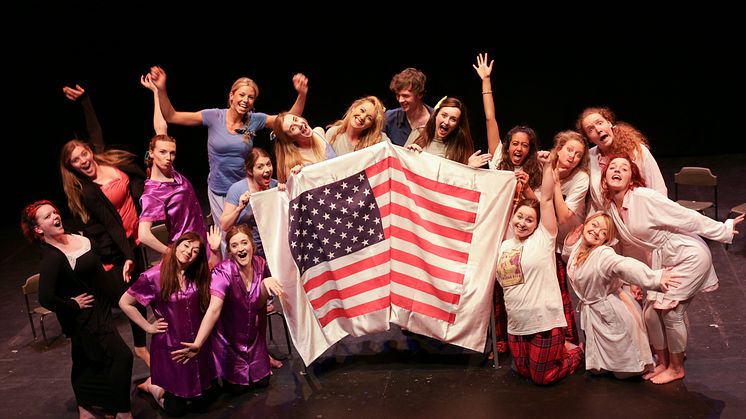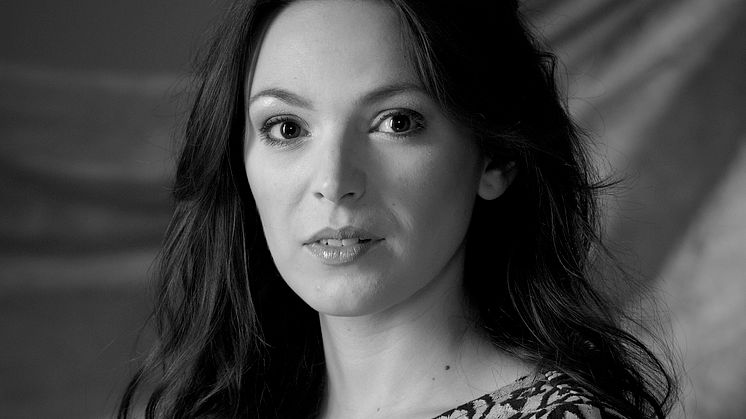
Press release -
INTERVIEW: Northumbria supports national participatory arts project
A pioneering participatory arts project, based around a fishing disaster, is currently touring the East Coast. Fiona MacPherson, Senior Lecturer in Performing Arts talks about how the University is involved in Follow the Herring.
Can you tell us a little more about the project? What’s it all about?
Follow the Herring combines singing, heritage, arts, crafting and knitting and is based on the heritage of east coast fishing towns and communities.
The project has been a six-month collaboration with local people, artists and organisations in each town and has culminated in this exhibition, with the infamous knitted Coat For a Boat as its centrepiece, and a theatrical performance, featuring local choirs, of the play Get Up and Tie Your Fingers by Ann Coburn that will tour from Musselburgh in Scotland along and down England’s east coast, ending in Hastings.
Get Up and Tie Your Fingers is based on the Eyemouth Fishing Disaster of 1881 when 189 men died. It is still the worst fishing disaster to hit the British Isles. The story tells the inspirational and uplifting story of three 'Herring Lassies' who, after losing the men from their families and most of the village, find a new way in the world. Women from fishing communities along the east coast of Scotland and England, known as the herring lassies, would follow the herring fleets down the coast to meet the catch at each port of call. With knives at the ready, they gutted, salted, and barrelled the ‘silver darlings’ of bountiful herring that were destined for markets across the world.
Echoing the journey of the herring lassies, Follow The Herring takes the play and exhibition to venues down the east coast back to the communities from which they sprang, giving members of those communities the opportunity to create, participate and engage in a piece of theatre as well as develop an exhibition that is specific to the community’s locality, traditions, heritage and points of interest.
Following sell out performances in Scotland and Berwick the play and exhibition will be arriving at its South Shields birthplace, The Customs House from the 21 - 24 May, before continuing to Kings Lynn, Hartlepool, Hull, Grimsby, Great Yarmouth, Margate, Folkestone and Hastings.
How do your roles as Lecturer at Northumbria University and as Co-Producer with the Guild of Lillians interact?
This is a great example of how my research combines with theatre practice in the wider community. The University places an emphasis on teaching which is research-informed in order to ensure students’ learning is up-to-date with professional practice. This really benefits the undergraduate teaching – I work with BA Drama and Applied Theatre, as well as BA Performance students.
How has your research informed this production?
I am interested in investigating how theatre can have a close relationship with real-life stories, and find a place to involve the wider community in theatre activity. The community choirs for Get Up and Tie Your Fingers are really enjoying the challenges and rewards of performing as part of a professional production with an excellent cast and crew.
Have graduates been able to get involved with the project?
The Northumbria University Graduates into Business scheme has supported two graduates to be part of the production and tour, working for the Customs House. They will experience all aspects of production management. Their key role will be to work with our community choirs in each location, assisting with their movement on stage, costume duties, etc. It is a rare and unique opportunity for emerging professionals in the theatre production industry to have this experience whilst being supported and mentored by leading professionals.
What can the audience expect to hear from the choirs?
During the performances, a local choir from each location will join the professional cast to perform a specially commissioned score by composer Karen Wimhurst, based on traditional songs. The choirs, made up from women between the ages of 14 and 80, have been working on learning the challenging score for between six to twelve months in each town we visit. The choirs form an integral part of the story as it unfolds on stage. Some of the choir members are ancestors of those lost in the fishing disaster, which the play focuses on, so the piece is very powerful to them and the community they live in.
To find out more and to book tickets, visit www.customshouse.co.uk/followtheherring
Topics
Categories
Northumbria is a research-rich, business-focussed, professional university with a global reputation for academic excellence. To find out more about our courses go towww.northumbria.ac.uk
If you have a media enquiry please contact our Media and Communications team at media.communications@northumbria.ac.uk or call 0191 227 4571.









